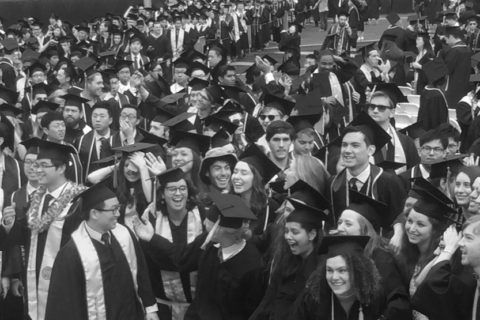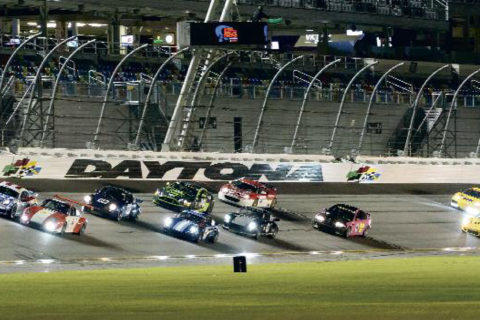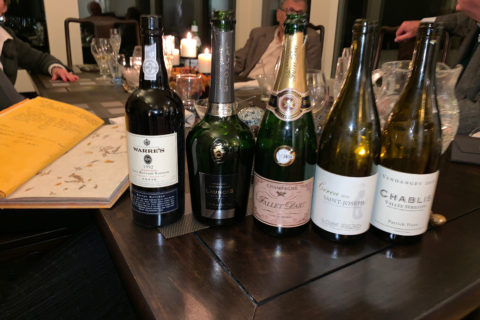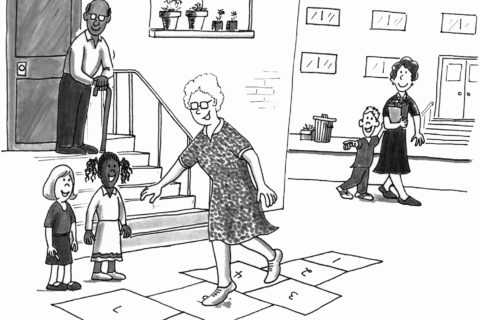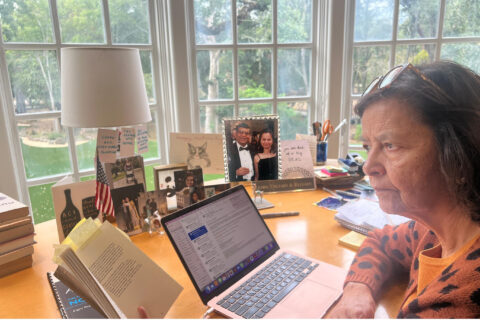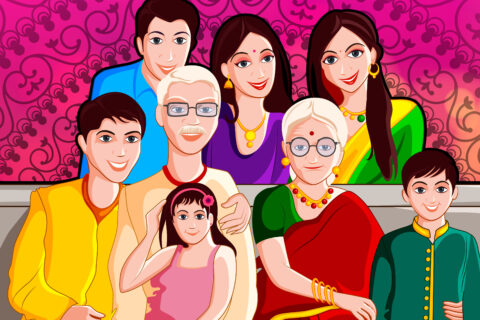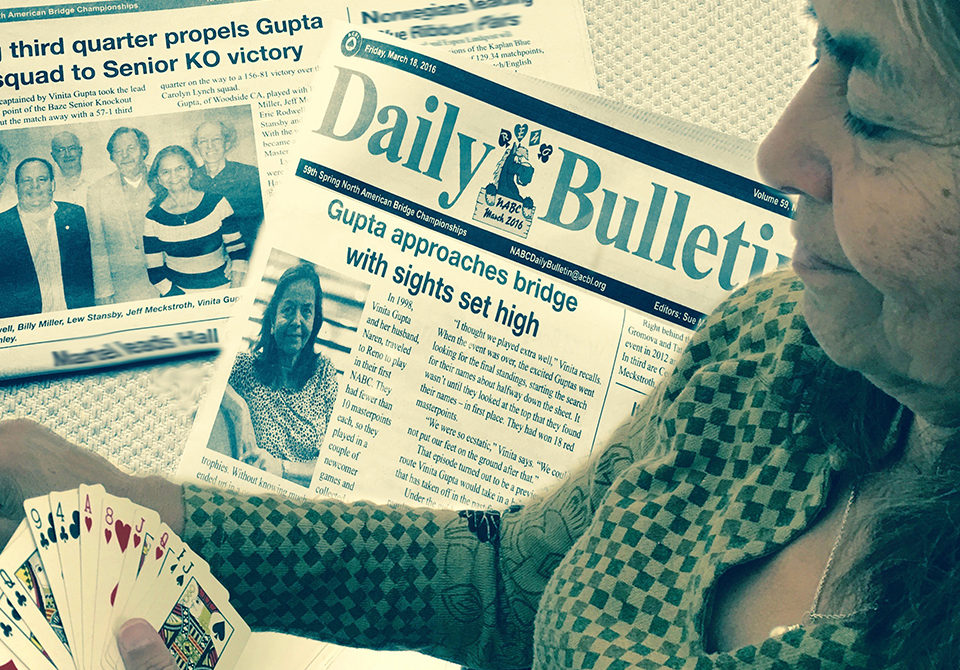
I started playing tournament bridge the year I was turning 60. I had spent my life as a nerdy engineer and entrepreneur in Silicon Valley. After being the CEO of my company for almost 20 years, the downturn in the IT industry persuaded me that it was perhaps time to retire. Next I decided to apply myself to something very different where I had no preconceived ideas. After exploring for a few years, nothing grabbed me. This rudderless life was actually painful, when I wandered into our local bridge club in Palo Alto, California. I had played bridge sporadically with my husband and knew the basic game. Bridge is the most complex mind game which not even the masters have been able to conquer. No computer can beat the masters. Within four years, I would win my first National Bridge Championship, and then my second! Most importantly it has caused a tectonic shift in my thinking.
The game can be magical, addictive and intoxicating, as the possibilities are countless. Brilliant people like Bill Gates have been seen playing in bridge tournaments that last days. Warren Buffet plays online bridge every week with Sharon Osberg, a coach for both these rich and famous men. Are Gates and Buffett good at bridge? No, but they can be if they put in the work.
Judgment, inferences, analysis, and playing the odds are the essentials of good bridge. Unlike in chess, inferences in bridge are drawn to guess others’ cards. In a tournament, my partner and I would play against the opposing team’s pair. All the cards get equally distributed amongst four players and a bidding contest begins. One pair wins the bidding contest and becomes “declarer” and “dummy”. The dummy opens all his cards on the table, and is out of the game. The three players at the table have some idea about each other’s cards which got revealed in the bidding, but also as the card play progresses. The defending pair, will signal each other of their strength in various suits, by discarding higher or lower card in the suit they like or dislike. Even though a pokerface and bluff can help, intellect, instincts, and accuracy are needed to win at bridge. Giving opponents the chance to make a mistake can also be a rewarding strategy. All these come into play in different situations and expert players are those that have keen judgement to do the right things in the right situation. No player, not even those who have been playing for decades, get it right all the time. At the same time, everyone in bridge gets their “aha” moment, which keeps us hooked to the game.
With my burning desire to enter high-level competitions, I hired a bridge coach. My coach lives in Las Vegas. He plays poker occasionally but bridge is his passion. He is also my partner in these tournaments which adds further complexity to our relationship. Occasionally he may yell at me, give me pep talks, but he always has high expectations from me, and I find I push myself to meet them. Coaching is essential, but like any sport, one must condition and practice to elevate one’s game. I spend most mornings of a big game in mental leveling so that when I arrive at the table, I remember most of 30 odd pages of bidding conventions agreed upon with my partner, and also have the required mental toughness and focus. Like in sports, one can never do well with a cold start. One needs to fire up the bridge-brain which I do by solving puzzles and bridge problems every morning. Solving somewhat tough problems activates the brain but too tough problems can numb it. Being able to solve problems makes you confident, but when you don’t get all of them right, it has the desired leveling effect. The last part is attaining a Zen state of mind. Like Michael Phelps, I find listening to music (Indian music) and walking helpful in soothing my nerves. Every sportsman learns his own ways of doing so. Winning a tough tournament also means concentrating intensely so that I can recall all the tools that I have in my coffers, reading the tealeaves, neither gloating nor beating myself up when I have played a hand well or badly. Its as much a mental game as of skills.
My 20 years as CEO, navigating my company from an exuberant IPO through an industry downturn, made me a fierce competitor at the bridge table and someone who could win national championships in just a few years. But bridge has also transformed me in unintended ways. What looks obvious may not be the right approach on a deeper analysis. Alternate scenarios must be considered. In real life it has meant discarding old biases and looking at things in non-habitual ways. Discarding old notions is uplifting, and makes room for new ideas. The late Alvin Toffler, a scholar and famous futurist, said, “Tomorrow’s illiterate will not be the man who can’t read; he will be the man who has not learned how to unlearn.”
